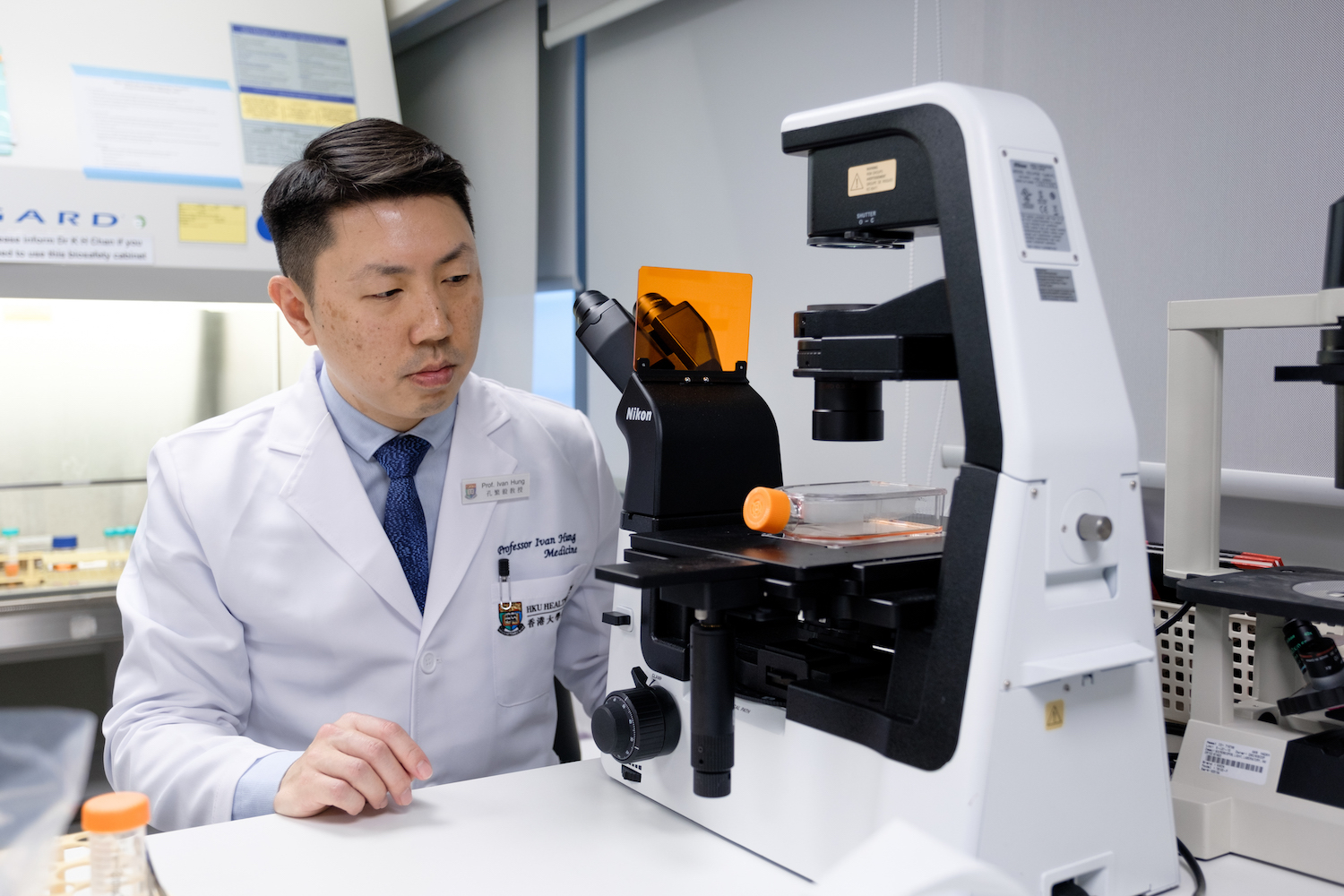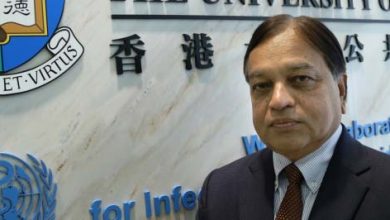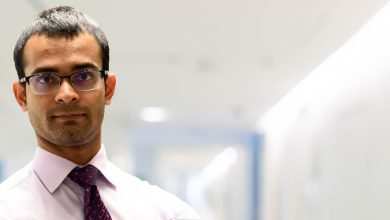Ivan Hung: high risk patients should receive the vaccine

In RTHK’s Letter to Hong Kong program on December 20, Professor Ivan Hung, Clinical Professor and Assistant Dean (Admissions), Department of Medicine at HKU, wrote a letter to his uncle about the vaccine, and assured him about the benefits of getting the jab.
Below is the full letter:
Dear Uncle Kay
Over the past one year, the Covid19 pandemic has affected 191 countries, with more than 75 million people infected and in excess of 1.6 million deaths. The situation was particularly bad in the United States, the country where you live. With more than 200,000 patients diagnosed every day, we can’t help but worry about you! In these ten long months, Hong Kong has experienced wave after wave of outbreaks. All social and business activities were put on halt. The economy has suffered hefty losses. We are playing catch up with this very smart virus. Its mutation rate is astonishing as highlighted by the D614G mutation of the surface spike protein which greatly enhanced its transmissibility.
In Hong Kong, we are currently experiencing the “fourth wave” of the outbreak, initially started by a dance cohort and have resulted in almost 2000 new cases since late November. Despite being highly contagious, the virus virulence remains unchanged as the current circulating clade was the same Nepalese clade identified late September. Most severe cases required intensive care are elderly patients with comorbidity, although a few young patients with high viral carriage who presented late to the hospitals might also presented with deterioration. The cold weather might also increase the viral replication in the nasal passage and upper respiratory tract.
In your previous letter, you asked whether you should receive the Covid19 vaccine once available. I fully understand your doubt as this is a completely new vaccine, without long-term safety and efficacy data. With regards to the Covid19 vaccine technology, there are three main platforms.
The first type is the conventional vector based vaccine, which relies on the adenovirus to deliver the spike protein genetic code into human cells, which then produce the protein and prepare the immune system to respond to a future infection. The second type is a completely new platform, using gene editing and modification technology to make messenger RNA of the coronavirus surface spike protein into the vaccine. Once injected into the human body, the immune system will recognize the translated spike protein and start producing antibody against the coronavirus. The third type is a Covid19 recombinant spike protein nanoparticle vaccine with adjuvant, which is also a relatively new technology.
In the usual circumstance, it will take 5 to 10 years for a new vaccine to develop from the laboratory to go into the market. First, the vaccine must go through animal testing, followed by a three-stage human clinical trials. The final report must be approved by the local authorities (for example the Food and Drug Safety Administration in the US) before vaccination in the human subjects. However, since the health system of many countries are close to collapse, Covid19 vaccine pharmaceuticals have been given special rights to expedite the clinical trials process, in which the US and UK have already launched the community vaccination program based on the recently published phase III vaccine trial short-term results, with reported efficacy of 95% and 70% respectively. The pharmaceuticals are also given special exemption from liability clauses with regards to adverse effects due to the vaccine. Nevertheless, the vaccine manufacturers still have to take responsibility to ensure the quality of the vaccines.
Despite recent worrying reports of facial palsy after the Covid19 vaccination in a few of the trial patients, there are no evidence to suggest these adverse events were associated with the vaccine as similar incidents were also reported in the placebo group. With regards to the long-term results, we have yet to know the one-year or beyond vaccine efficacy and safety. As we previously reported of the world first case of reinfection, we understand that the antibody will drop to an undetectable level over a period of around 6 months. It is likely that similar to the influenza vaccine, annual COVID19 vaccination will be required and vigilance in infection control and face masking might still be needed.
In view of your age and past medical history of diabetes and obesity, I would strongly recommend you to receive the vaccine once available. We learn from our past experience that elderly patients, especially those with chronic illnesses of diabetes, cardiac and pulmonary diseases, immunosuppressed hosts and cancer patients on chemotherapy are at high risks of deterioration and complication of developing of severe pneumonia upon contracting COVID19. These high risk patients should be hospitalized once they are diagnosed and should be started on a combination of antiviral treatment as soon as possible, in order to suppress the viral replication and reduce the risks of subsequent complications and pneumonia associated with the hyperinflammation phase in the second week of the infection.
In your previous letter, you also expressed concern about whether the poorer countries will get a fair share of the vaccines. For this, you could rest assured. The International organization COVAX will be responsible for distributing the Covid-19 vaccines fairly among different countries. The COVAX, co-led by the Global Alliance for Vaccine Immunity (GAVI), the Coalition for Epidemic Preparedness Innovations (CEPi), and the World Health Organization (WHO). Its aim is to accelerate the development and manufacture of COVID-19 vaccines, and to guarantee fair and equitable access for every country in the world. The coalition hopes to provide 2.1 billion doses of safe and effective vaccines in 2021, and to distribute them to all COVAX participating countries fairly according to the population, so as to provide a certain degree of safety net for poor countries.
At The University of Hong Kong, we have developed an intranasal COVID19 vaccine based on an influenza vaccine platform. Hopefully, we will be able to kick start the phase 1 clinical trial on this vaccine early next year. If successful, we will be able to proceed to Phase 3 clinical trial later next year globally. This vaccine has the potential of conferring local immunity at the nasal passage and could combine the seasonal flu and Covid19 as a single vaccine to be given annually.
Hopefully, the universal COVID19 vaccination coupled with the natural infection will shorten the time to achieve herd immunity globally, so that social, economic and traveling activities could be resumed. I look forward to visiting you in San Francisco next year. Merry Christmas and Happy New Year.
Warmest regards,
Ivan



